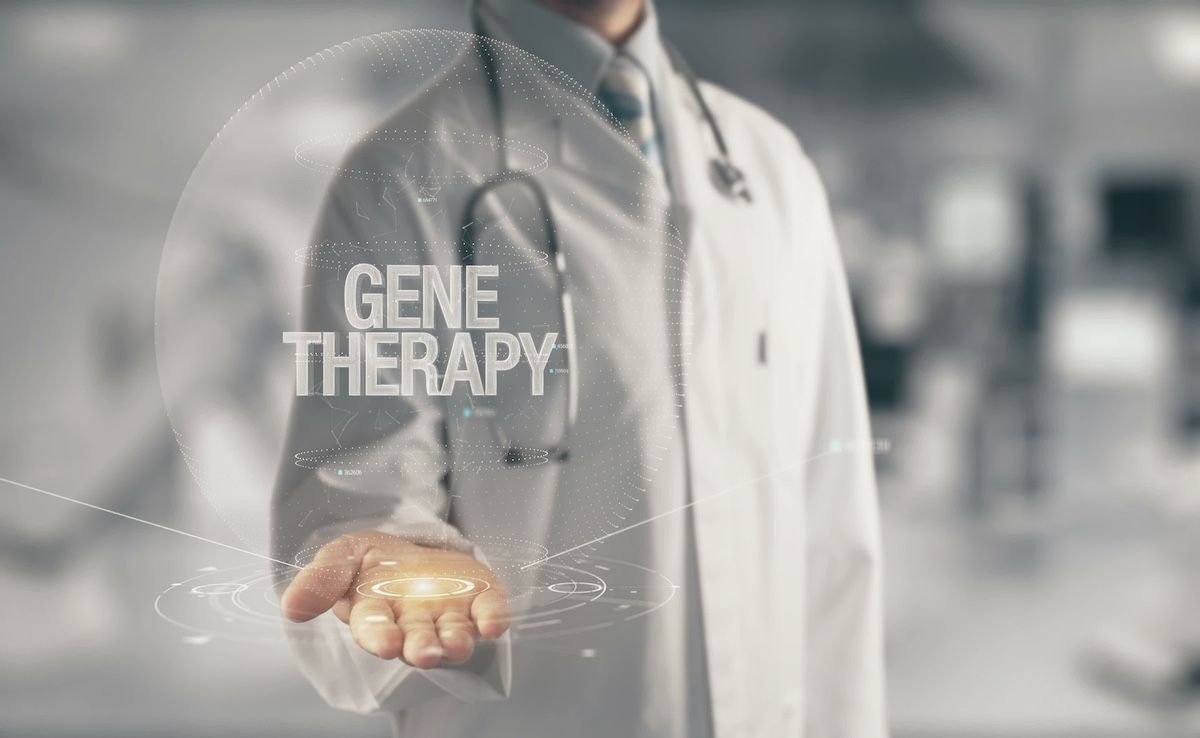- Center on Health Equity & Access
- Clinical
- Health Care Cost
- Health Care Delivery
- Insurance
- Policy
- Technology
- Value-Based Care
Real-World Data Demonstrate Efficacy of Beti-Cel Gene Therapy
Investigators said patients experienced adverse effects in line with those expected for myeloablative conditioning with busulfan following treatment with betibeglogene autotemcel (beti-cel; Zynteglo; bluebird bio).
Real-world data related to the gene therapy betibeglogene autotemcel (beti-cel; Zynteglo; bluebird bio) support the therapy’s efficacy at eliminating transfusion dependence in patients with transfusion-dependent β-thalassemia. The data also suggest the therapy’s safety in a real-world setting aligns with what was seen in the clinical trial setting.1 The study was published in Blood Advances.
Transfusion-dependent thalassemia can be cured with allogeneic hematopoietic stem cell transplantation (HSCT), but not every patient is able to find a suitable donor, and using mismatched donors raises a significant risk of morbidity and mortality, explained the authors. The advent of gene therapies has opened another potential avenue for therapy in these patients, they explained.
“Recent clinical studies have shown that gene therapy, either through gene addition of functional copies of a modified β-globin gene by lentiviral vector or gene editing of BCL11A enhancer to induce fetal hemoglobin expression by CRISPR/Cas9, results in transfusion independence in most patients with transfusion-dependent thalassemia 12 years and older irrespective of genotype, including patients as young as 4 years with lentiviral-based gene therapy,” they wrote.2
Beti-cel was granted marketing authorization in Europe in 2019 to treat patients with non-β0/β0 transfusion-dependent thalassemia, but the authorization was withdrawn in 2022 at the company’s request due to commercial reasons. That same year, the therapy won approval from the FDA to market the drug in the US.
In this investigation, no patients died, but all 3 female patients and 2 of the 5 male patients experienced pituitary-gonadal endocrine dysfunction. One patient each also developed polycythemia, experienced posttreatment depression and anxiety, and developed severe fatigue. | Image Credit: © Anar Mammadov-stock.adobe.com

The new data come from patients who received the therapy at the University Hospital Heidelberg, in Germany, during the window of time the therapy was available in the European Union.
Eight patients received myeloablative conditioning with busulfan followed by infusions of beti-cel. All the patients achieved transfusion independence, within a range of 8 to 59 days, recording posttreatment hemoglobin levels between 11.3 g/dL and 19.3 g/dL.
“In this report, all patients achieved [transfusion independence] and had an unsupported hemoglobin level of > 11 g/dL, confirming the efficacy of beti-cel,” the study authors said.
The investigators said the median times to neutrophil and platelet engraftment in their real-world cases were similar to the time frames reported in the beti-cel clinical trials.
In terms of safety, no patients died, but the authors said some patients experienced adverse events in line with the known adverse effects of busulfan. All 3 female patients and 2 of the 5 male patients experienced pituitary-gonadal endocrine dysfunction. One patient each developed polycythemia, experienced posttreatment depression and anxiety, and developed severe fatigue. The latter 2 patients said their quality of life and ability to work were affected by the therapy.
Posttreatment platelet management was complicated in 3 patients due to human leukocyte antigen antibodies, the investigators said.
The authors noted that 5 of the 8 patients in the study were older than age 16, and patients in that category experience a higher risk of graft failure and mortality following HSCT.
“In this respect, the safety profile of beti-cel following myeloablative busulfan conditioning should not be overinterpreted due to severe hemosiderosis (> 15 mg/g dw) being an exclusion criterion,” they wrote.
The investigators added that the cause of the polycythemia case remains unknown. They said most of the patients reported subjective improvements in their quality of life.
“Our experience underscores challenges with busulfan conditioning and its impact on gonadal function, pinpointing the need for less toxic conditioning regimens,” they concluded.
As more patients begin receiving the therapy in the US, the authors said these data should help clinicians and patients better understand what to expect.
References
1. Mirza A, Ritsert ML, Tao G, et al. Gene therapy in transfusion-dependent non-β0/β0 genotype β-thalassemia: first real-world experience of beti-cel. Blood Adv. Published online October 17, 2024. doi:10.1182/bloodadvances.2024014104
2. Locatelli F, Thompson AA, Kwiatkowski JL, et al. Betibeglogene autotemcel gene therapy for non-β0/β0 genotype β-thalassemia. N Engl J Med. 2022;386(5):415-427. doi:10.1056/NEJMoa2113206
